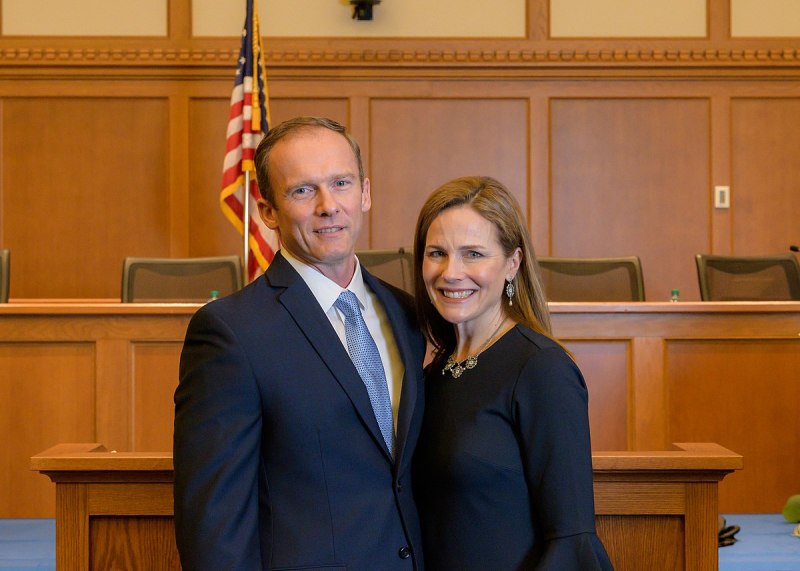
After the passing of Justice Ruth Bader Ginsburg last Friday, one likely Trump pick to replace the iconic justice has drawn a large amount of attention. Judge Amy Barrett is a Notre Dame educated former Supreme Court clerk, law professor, and a judge on the US district appeals court for the seventh circuit and is high on Trump's list for the Supreme Court.
According to Christine Baglow, director of youth ministry at St. Joseph Catholic Church, Judge Barrett came across as "tremendously friendly." She said of when she first met Barrett at a dinner party: "I found her a very gracious and very thoughtful person. Very kind and authentic."
If Judge Barrett is confirmed as the 9th Supreme Court Justice, Trump's legacy of judicial appointments will be almost unparalleled in recent history. Donald Trump tweeted that he would select a woman to replace Ginsburg "without delay."
Judge Barrett has experience of the storm that comes with being on the shortlist for the Supreme Court. She was previously featured on Trump's list of possible nominees to replace Anthony Kennedy in 2018 after he retired. However, President Trump had other plans for Barrett.
Axios reported that Trump was "saving her for Ginsburg," referring to Amy Barrett in early 2019. In 2018, President Trump was worried that "the women," as he called Sens. Lisa Murkowski (R-Alaska) and Susan Collins (R-Maine), would oppose the nomination of Barrett due to her opposition to abortion, according to Axios.
Furthermore, Axios reported that Barrett's education did not impress Trump. She earned her law degree at Notre Dame, and Trump reportedly prefers candidates who attended Harvard or Yale.
Senate Republicans' have come under fire for trying to fill the supreme court vacancy. Joe Biden, the Democratic nominee, called Trump's plan to immediately fill the open seat an "abuse of power".
Conservatives see a young, strict constructionist in Barrett, similar to Antonin Scalia in how they interpret the constitution as she believes the writers intended. Barrett previously clerked for Justice Scalia on the Supreme Court.
Progressives are especially worried since Barrett opposes abortion. She has already endured questions about her faith and how it informs her decisions and she has come under criticism previously from liberal leaders.
Her colleagues, however, see it as unfair to paint Barrett solely through the lens of her religion.
Notre Dame law professor Paolo G Carozza told the Guardian, "Knowing her as well as I do and having seen the way she operates, the only way in which her religious convictions are going to affect what she does as a judge is that they give her the humility to say, 'What I do is all about the law and all about interpreting the law and the basic values of upholding the rule of law and the legal system and nothing else.'"
Carozza remembers Barrett as a standout law student when he joined the faculty at Notre Dame in 1996. He said that Barrett has never been one to proselytize or write her religion into her opinions.
"I don't think it's unfair to question someone who's a judicial appointee about their religious beliefs," he said. "If someone says, 'I'm going to interpret the law according to what the Qur'an says or what the Bible says,' that's something that in our republic we wouldn't want."
"What makes it unfair in her case is that it was asserted on solely on the basis of knowing that she is a religious person, rather than any evidence in the things that she's written or in the way that she behaved that might interfere with the administration of the law."


















